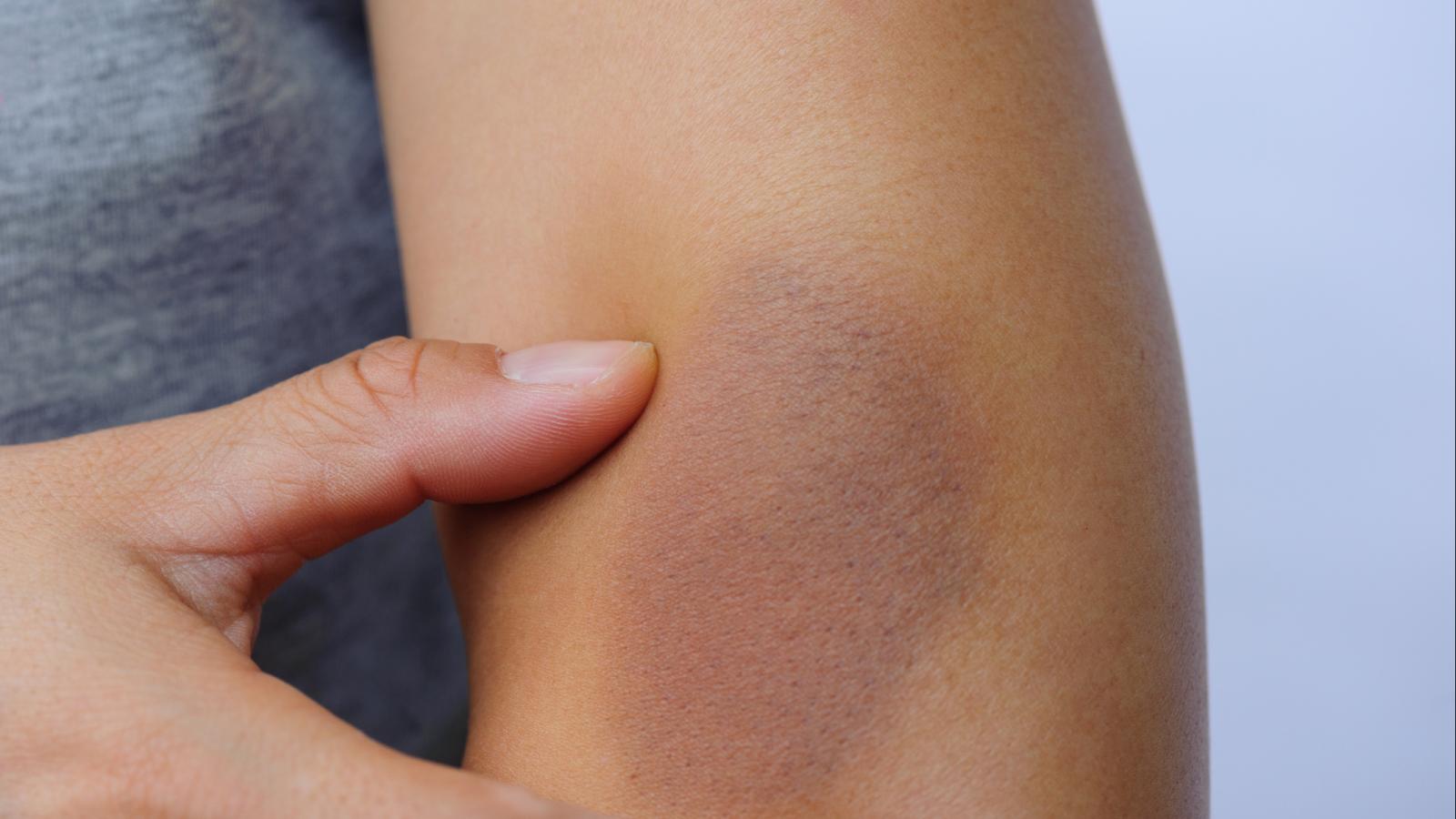Bleeding and bruising

What is it?
Platelets help to make your blood clot and stop bleeding when you hurt yourself. If your platelet count is low (thrombocytopenia) you will be more likely to bruise and bleed.
What causes it?
Bone marrow not producing enough platelets because of cancer or cancer treatments such as chemotherapy.
What are the symptoms?
- Unusual bleeding e.g. nose bleeds, bleeding gums
- More bleeding than usual, e.g. heavier bleeding from minor cuts or grazes, heavier menstrual periods
- Unexplained bruising
- Pinpoint rash on the skin, usually on your legs, feet, trunk and arms. This is known as petechiae.
What should I do if I have symptoms?
Talk with your doctor if you feel that you have these symptoms. Your platelet count will be measured and you may need a platelet transfusion.
How is it treated?
If your platelets are particularly low, your doctor may recommend a platelet transfusion. This is given through a drip into a vein and is relatively quick, lasting between 15-30 minutes. Because platelets last only a few days, they are usually only given if you have signs of bleeding.
Side-effects of platelet transfusion
During your transfusion, your nurse will check your blood pressure, pulse and temperature. This is to ensure you don’t have a reaction to the platelets. Symptoms of a reaction include:
- Shivering
- Breathlessness
- Itch or a rash
- A rise in temperature
You should tell your nurse immediately if you experience any of these symptoms as they will stop the transfusion.
How can I avoid problems?
- Avoid blood loss by using a soft toothbrush (such as a child’s toothbrush) for cleaning your teeth and an electric razor when shaving.
- Wear rubber gloves when doing household or gardening jobs, to protect yourself from cuts.
- Check with your doctor or nurse before taking any vitamins, herbs, minerals, dietary supplements.
- Ask your doctors or nurses before taking any medication. Usually people with thrombocytopenia are advised to avoid aspirin and anti-inflammatory medications.
- Contact the hospital if you have signs of infection, such as high temperature over 37.5°C (99.5°F) or feeling shivery or unwell. Infection can further lower your platelets, so if you already have a low platelet count, you may need to go to hospital for a platelet transfusion.
For more information
Phone
1800 200 700



